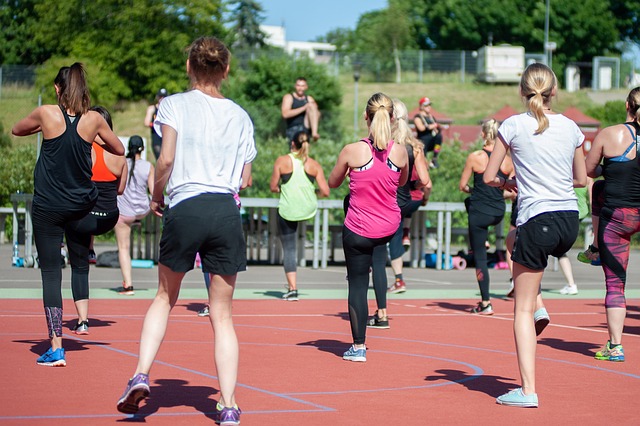A consistent fitness routine requires many ingredients, including setting goals, being prepared, being disciplined, and remaining devoted. But one of the most fundamental and often obscure factors is motivation.
We frequently wait for the desire to exercise, believing that it will appear one day. However, for many of us, the desire to exercise is best during the planning phase because most of us are working toward a future objective, such as decreasing weight.
You’re probably comfortable, rested, and feeling good while you’re contemplating a future activity, and you’re probably picturing yourself going through a workout and succeeding. But what if your alarm goes off at 5 a.m. or you’re traveling home from work? That drive is nowhere to be found.
What Exactly Is Motivation?
Motivation can be described simply as what pushes us to retain or attain our goals. It may even be considered a form of desire.
Things alter a little when you look at it that way, at least for many of us. Yes, you should exercise, you need to exercise, and you want to exercise, but do you want to exercise?

Maybe some people—enjoy the sensation of exercise. However, for many of us, exercise is supposed to have a single end goal—helping you lose weight, look better, grow stronger, feel better, be healthy, avoid diabetes, and so on.
That’s not the same as wanting to exercise, which is why so many of us hit a brick wall. We create goals, make plans, and sometimes even stick to those plans for a while. However, we may find that our motivation wanes and question what we’re doing wrong.
Motivation Types
It’s critical to understand where your drive comes from and that there are several sorts of motivation. There are external factors that motivate you and internal impulses that drive you.
Extrinsic Motivation
When it comes to exercising, we normally rely on this type of motivation. It’s similar to the carrot and the stick. You either use a carrot (“You’ll lose weight!”) or a stick (“You’ll get fat if you don’t work out!”) to entice yourself into working out.
Other outside motivators include:
- Looking fantastic in a swimsuit
- Getting in shape for a high school reunion
- Obtaining flat abs
- desire to fit into old jeans
- Attempting to regain the weight you had in college
- Do you want to appear good for your spouse or a loved one?
When you have that kind of drive, you don’t necessarily exercise because you enjoy it. You’re doing it because it will provide you with what you desire in the distant future.
The problem is that you don’t know how long it will take or if it will give you what you want. What if you are unable to perform the quantity of exercise required to achieve the bathing suit body? What if you simply lack the genetics to have flat abs? That is frequently when motivation wanes.
Motivation from Within
Another source of the drive is internal motivation. This is something significant to you, not some distant objective that you can obtain right now.
Intrinsic motivation examples include:
- Exercising for the sake of exercise
- I’m addicted to runner’s high.
- Working out because it helps to reduce stress
- Feeling wonderful when your body strengthens and you can perform more than previously.
- Exercise is enjoyable because it allows you to think or zone out.
You can see the distinction here. External motivators can be ephemeral, whereas internal motivators have a longer shelf life.
A study looked at weight control factors in 136 people. They discovered that persons who concentrated on internal motivators such as self-efficacy, interest in what they were doing, and enjoyment of exercise had the best long-term weight management success.
Both of these sources of motivation are essential for staying on track. Intrinsic motivation is what propels you, whereas extrinsic motivation serves as a supplement to what drives you from within. You can draw on both of these whenever you’re presented with the decision of whether to exercise or sleep.
Why Aren’t We Motivated to Work Out?
There are numerous reasons why we may not be as driven to exercise as we once were. Some of these are genuine barriers or challenges that we must overcome, such as:
- Sedentary employment and lifestyles: Most of us spend the majority of our waking hours on the computer or in the automobile, which means less walking and more sitting. The more we sit, the more we become accustomed to sitting, and the more difficult it is to get the body moving.
- Being overweight: It is more difficult to exercise if you are overweight. You may have physical concerns, such as joint pain or an injury, and it may be difficult to move a larger body, making exercise more scary and painful.
- Busy lifestyles: We are busier than ever, which makes it easy to miss exercise.
- Stress: While exercise is designed to relieve stress, it actually causes stress on the body. Working exercise may be the last thing on your mind if you’re anxious, even if it’s definitely the greatest thing for you.
- Access to fitness facilities: If you don’t live near a gym or community center, it may affect how frequently you exercise.
- Neighborhood safety: If you have safe locations to walk, run, or cycle, you’ll be much more likely to do so, especially if you see other people doing the same.
The world we live in makes it difficult to exercise. However, there are more methods to exercise than ever before. Fitness applications, on-demand workouts, and live-streaming classes are all available. CrossFit boxes, small-group personal training, and outdoor boot camp programs, in addition to regular gyms, studios, and health clubs, are commonly available.
Mental Roadblocks to Fitness Motivation
Other factors prevent us from exercising, such as internal obstacles we create without even recognizing them. Is one of these preventing you from exercising?
- Fear Exercise can be intimidating, especially if you haven’t done it in a long time or are attempting something new. It may seem easier to avoid the whole affair rather than risk injuring yourself or seeming like an idiot.
- Confusion How much exercise do you require, and how do you manage it all? When we don’t know where to begin, we become paralyzed. We then end up doing nothing.
- Suffering and Pain Exercise is physical exertion, and as such, it can be uncomfortable. For those of us who aren’t used to it, it can feel more like pain and misery, which is another reason people avoid exercise.
- Boredom There are plenty of dull exercises out there, and we’ve been exposed to far too many of them. And, like everything else in life, exercise can be tedious at times.
- Frustration Many people exercise to reduce weight, only to discover that success is extremely gradual. That’s another reason why many of us give up before we see any significant progress.
- Dislike of Exercise You may believe that you despise exercise. More than likely, this signifies you haven’t yet discovered a sort of exercise that you enjoy.

How to Motivate Yourself to Exercise
There are numerous factors that can obstruct exercise. The best method to truly encourage oneself to exercise is, to begin with, one crucial step: don’t delay.
Every day, motivation can shift. Perhaps you were motivated to work out yesterday simply because that is what you do first thing in the morning. That doesn’t work the next day since you’re fatigued. What happens next?
You might have to look a little deeper to find a cause to get out of bed.
Maybe you need a motivator, such as “If I do my workout this morning, I can spend a half hour evening playing a ridiculous iPad game.” Whatever it is, you may need to try a few different things before you find the one that works for you.
Create an environment that inspires you.
Setting up your environment to promote an exercise habit is one approach to staying motivated. By doing so, you’re reducing some of the impediments to motivation.
- Make it simple to work out. Make sure you have all you need for each workout. Know what workout you’ll do, how long it will take, and what you’ll need to perform it so that when workout time arrives, you don’t have to go looking for that other shoe or your heart rate monitor.
- Look for something you enjoy. Is it necessary to enjoy exercise? No. But you should find something positive in it. Forget about what you think you should do and instead do something you enjoy or can endure. Everything is difficult at first, but it becomes easier as you progress. Walking is usually a good place to start.
- Learn to be good at something. Self-efficacy is a natural motivation. It feels nice to be a master of something, so why not spin aerobics or push-ups? When you concentrate on doing something properly, you lose sight of the fact that you’re exercising.
- Find some help. If possible, find a workout buddy or someone you can text every day for accountability. Beyond that, get your family behind you so you can work out without worrying about everyone else.

- Experiment. It is completely natural for the first few things you try to fail. Continue to try things you don’t like or that don’t work. Allow yourself to experiment until you feel more comfortable with yourself.
- Be adaptable. Every day is different, and there will be times when inspiration is lacking. This is an excellent opportunity to reflect on what is going on. Why are you so unmotivated? Maybe you need more sleep, or maybe you should cancel your plans and go for a walk instead. Listen to yourself to find the motivation you require.
- Give yourself a treat. Reward yourself for each workout, no matter how minor: Allow yourself time to listen to music or read a book, bathe in a hot tub, or go shopping. Plan larger rewards, such as a massage or a night out, once a month. Knowing you’re going to get a treat is a fantastic motivation.
- Get some assistance. You have no idea what you’re doing? Hire a personal trainer, or look through Verywell’s workout library for ideas.
Simply keep going. There always comes the point, perhaps a few weeks after you begin working out, when your motivation wanes, and you want to give up. This is the time to keep going because momentum is an important component of persistent training.
To Conclude
Motivation is only one aspect of becoming an exerciser, and it’s generally the one we struggle with the most when we first start. Rather than letting that enthusiasm evaporate, consider what you truly want for yourself beyond weight reduction and appearance.
People who exercise seek reasons to do so because they know it improves their lives. Consider what might improve your life, and you’ll discover the inspiration to keep going.

